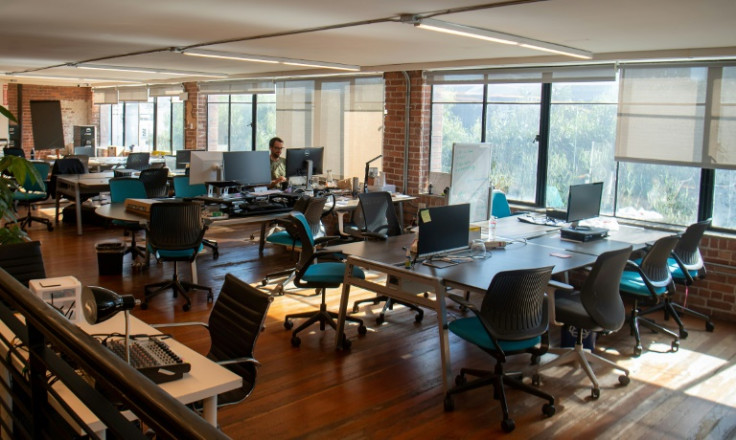Major new study reveals 72% of companies have now mandated a return to the workplace
A major new study has revealed that 72 per cent of companies globally have now mandated a return to the workplace, with 42 per cent now reporting a higher level of employee attrition.

A major new study has revealed that 72 per cent of companies globally have now mandated a return to the workplace.
The Global Workplace Insights Report, produced by strategy company Unispace, also found that 42 per cent now report a higher level of employee attrition than anticipated, while almost a third (29%) are struggling to recruit altogether.
The findings come after major companies such as KPMG, Starbucks and Twitter have ordered a return to in-person work.
It is suggested that as a result of decreased in-office hours, many organisations have been facing difficulties in staff interaction, collaboration, engagement and connection, as well as some negative impacts on working culture and productivity losses.
Before the COVID-19 pandemic, remote and hybrid working had been increasing gradually.
Between January and December 2019, around 12 per cent of the UK workforce had worked at least one day from home in the previous week and around 25 per cent reported working mainly from home.
However, as a result of the pandemic, and the subsequent lockdowns aimed at reducing the spread of the virus, the way in which people worked completely changed.
Data from the Office for National Statistics (ONS) shows that during the first lockdown, the number of adults working from home rose to almost 50 per cent.
However, the new data shows that companies are increasingly looking to reverse this trend.
According to a January 2023 survey of 1,806 US workers by recruitment-agency Monster, while half of the employers believe giving employees flexible schedules has worked well, a third who planned to adopt a virtual or hybrid model have changed their minds from a year ago.
"By inclination, executives want their people in the office, more than they do remote," says Charley Cooper, the chief communications officer at enterprise technology provider and blockchain-software company R3, based in New York City.
"However, they were unable to enforce that during the peak of the pandemic hiring boom: the competition for talent meant if you made your employees come back to the office, they'd call your rival and take a job there."
But, persistent economic instability amid job cuts has shifted the power dynamic. For workers, finding a job which allows them to work from home may become increasingly difficult.
For employers, retention is no longer a top priority, giving them greater leverage in demanding their workers back to the office.

However, the study also revealed that employers have not recognised the challenges that employees have with their current workplace setup.
The majority (58%) of workers indicated that they struggle to carry out their core job in the office due to distractions. Meanwhile, 83 per cent of employers say they believe that the office is set up to allow their employees to be productive.
The data suggests that office spaces are insufficient to support mental well-being in today's hybrid working environment.
"The fact that almost half of the workforce felt that their mental health improved while working from home, highlights that too many workplaces do not meet the needs of the people that use them," added Claire Shepherd, Chief Operating Officer at the Workspace firm.
In light of the current economic crisis, prioritising employee welfare is now more important than ever for the survival of UK businesses.
Weekly10, a company specialising in employee performance, highlights the importance of supporting physical health in the workplace during a cost-of-living crisis.
For instance, providing ergonomic workstations with adjustable seats, desks, and computer monitors can help reduce the risk of injuries or chronic discomfort caused by prolonged sitting. Employers can also encourage physical activity by offering walking or standing meetings and flexible work schedules.
"Employee work habits continue to evolve as we all adapt in today's rapidly changing work environment", says Steve Quick, Unispace Global CEO.
"Employers who take the time to understand what their employees need and value most from their office will be more successful in redefining the power and purpose of that workspace," he added.
The message is clear – if employers want to lure workers back to the office, changes to the workplace must be introduced to suit the changing needs of the workforce.
The Unispace study also found an overall reduction in employee numbers, with some companies struggling to meet their labour needs.
This labour shortage may have been caused by a skills gap. Globally, the demand for qualified IT professionals has soared over the past few months.
However, the clamour for workers is not yet being matched by the available talent pool - worldwide, there is a global talent shortage of around 40 million skilled workers.
Technology trends are making the biggest impact in this shortage, and areas like data analytics and web development will face the greatest need to fill positions over the next decade.
In a survey conducted by recruitment agency Hayes of 13,000 employers and workers in the UK, 1,400 of which were in tech, the recruitment and HR firm found 94 per cent faced a lack of talent last year, up from 89 per cent the year before.
Hays director James Hallahan, who specialises in technology, said: "Tech skills gaps are intensifying as we continue to see fewer young people engaging in tech careers each year."
He explained that due to the current shortage, organisations feel understaffed, leading to additional duties being left to skilled workers, creating burnout and a higher level of turnover than ever before.
© Copyright IBTimes 2025. All rights reserved.






















